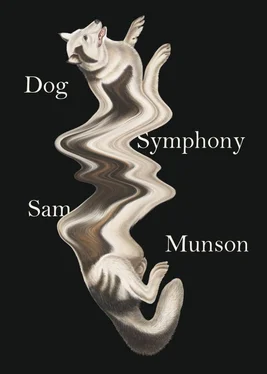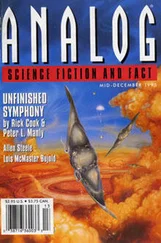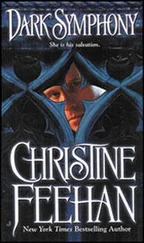The parlor activities went on and on. The Danes opened and closed their teeth in a hidden and sublime order, one I could not despite my generally improved senses detect. They talked about further plans for the trip, the cultural and aesthetic “events” that lay ahead. As if forming a swamp. We really must get out to Mendoza, said the woman, and marine laughter broke forth once more, though she had not said anything amusing. I rose and stretched my limbs as I prepared to canter between the blue roosters and back out onto José Bonifacio. But a noise, a mechanical sound — the indignant noise a van engine makes as it spins down — gave me pause. The chalky beam of a flashlight flashed across the garden fence.
I held my breath. Above the fence a sky-blue hat cruised along, then stopped. The garden gate sang as it was pushed fully open. Between the two sky-blue roosters I observed two sky-blue legs. The ovoid of glare from the flashlight traveled across the brick path. The legs belonged to an officer I did not recognize. He was young, thin, and short; he had the face of a mole, puffy and blind. His baton hung at his left side, his pistol at his left. On his upper lip a faint reddish down sprouted. He gave a soft whistle and called out: Here, boy. I looked up at Violeta’s window again, expecting her to be standing against it and watching, but she was gone, the window was dark, and the Danish guests were laughing their nasal, watery laughs. The officer approached the tomato patch and moved the light across it. I had forgotten to shut my eyes, and he must have seen them flashing green or yellow, because he muttered to himself: There you are, boy, come on, boy. He was carrying in his free hand a pink slab of meat, which he waved back and forth. The meat was almost the same shade as his fat, light-coated cheeks.
At last, I thought. As if I had been awaiting this tentative and clumsy young man. He did not smell me, but I smelled him, his sweat, the rum on his breath. Decaying teeth as well. The detergent in his uniform and the polish on his high boots. I backed up, closer to the tomato vines and hedges to hide myself. Their cool shadow embraced me, sleeved my pelt. The young officer lost track of me. I saw it in his eyes when I glanced up (now I kept my face aimed earthward as he swung the flashlight back and forth). It was much easier to evade these agents, these state breathers, as a dog. I remembered without rancor or self-pity all the difficulties his now-dead colleagues had caused me, all the pain they had inflicted. True. Nevertheless — well, for one human to kill another, that belongs to the moral world. For a human to kill a dog, that does too. But the moral world excludes whatever does not originate with humanity.
The cupped leaves of the tomato vines held darkness. The windows of the Pensión Vermesser held light. The young officer struggling to grow a mustache came closer, still looking for me. The glow from the window crossed the nameplate on his sky-blue chest: SCHULZ. I recalled the stiff cloth of Klemperer’s uniform against my human shoulders. Officer Schulz came closer and closer, his voice growing louder and lighter at each step, as though he were speaking to a child. Finally his cries alerted the Danish guests in the back parlor. They set down their wine glasses and came to the window; one of them asked Schulz what he was looking for, and he answered, without any shame: A dog, the owner called; you have no idea the trouble they cause law-abiding citizens and business owners. I glanced up toward Violeta’s window. She was there again, in her green shirt, staring down, her mouth impassive and her eyes half-closed.
As Schulz gave this little speech, the meat still flapped in his hand. Back and forth, back and forth. That I could smell, too, and the blood trickling from it down his wrist and into the uniform cloth. In his van, a service radio began to hiss and chime. His words, dull as they were, calmed the guests. The woman made no more objections. She leaned on the sill, looking from Schulz to the darkness where she imagined I was. Schulzpor was already twisting his boy’s mouth — the presence of this woman added a new audience for him. I gazed between the vines at the young officer. Through his veins, pearly darkness pulsed, I knew, and pearly darkness craves its source. The night lay in curved sections along the streets. The streets retreated, eternally. My course became clear. Saliva filled the hollow beneath my tongue and poured over my pointed teeth. In the moment of bodily unguardedness that precedes action, my bladder spasmed and my urine sprayed the grass. The modest noise made Schulz widen his false smile. He saw me now, he waved the meat, he flapped his right hand to summon me closer. An artery jumped under the hinge of his jaw near the skin. I set my feet, tensed my muscles, I prepared to leap. And I realized I could, for the first time, smell the sea.
NEW DIRECTIONS TITLES AVAILABLE AS EBOOKS

https://www.ndbooks.com/book/some-trick/

https://www.ndbooks.com/book/armand-v/

https://www.ndbooks.com/book/t-singer/

https://www.ndbooks.com/author/ahmed-bouanani/
ndbooks.com
Copyright © 2018 by Sam Munson
All rights reserved.
Except for brief passages quoted in a newspaper, magazine, radio, television, or website review, no part of this book may be reproduced in any form or by any means, electronic or mechanical, including photocopying and recording, or by any information storage and retrieval system, without permission in writing from the Publisher.
Manufactured in the United States of America
New Directions Books are printed on acid-free paper
First published in 2018 as New Directions Paperbook 1415
Library of Congress Cataloging-in-Publication Data
Names: Munson, Sam, author.
Title: Dog symphony / by Sam Munson.
Description: First edition. | New York : New Directions Books, 2018. | “A New Directions Paperbook.”
Identifiers: LCCN 2018009878 (print) | LCCN 2018002152 (ebook) | ISBN 9780811227698 (ebook) | ISBN 9780811227681 (alk. paper)
Classification: LCC PS3613.U6936 (print) | LCC PS3613.U6936 D64 2018 (ebook) | DDC 813/.6 — dc23
eISBN: 9780811227698
New Directions Books are published for James Laughlin
by New Directions Publishing Corporation
80 Eighth Avenue, New York 10011
















